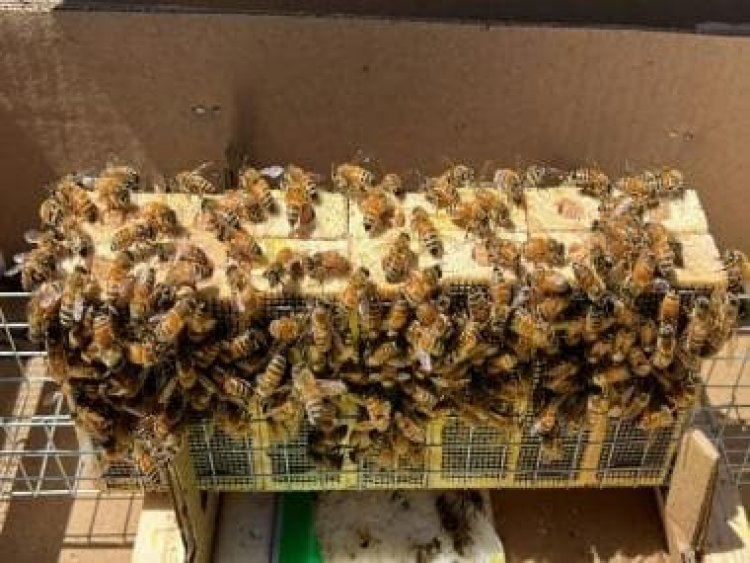California long rainy winters hit beekeepers, but could be a good year for honey
California long rainy winters hit beekeepers, but could be a good year for honey

Beekeeper Gene Brandi said that during California’s lengthy, rainy winter, he had to spend twice as much money on sweet syrup to feed and sustain his honeybees.
That’s because freezing weather, wind, and rain made it harder than normal for the bees dispatched to pollinate blossoming almond trees to emerge from their colonies. The 71-year-old beekeeper fed the bees because they weren’t out collecting pollen and nectar for food.
“We probably fed twice as much than we’ve fed in a normal year,” said Brandi, of the Central Valley community of Los Banos. “It’s expensive to feed, but it’s more expensive if the hive dies.”
The difficulty is one of several that American beekeepers are facing as a result of the exceptionally rainy winter that devastated California’s farming region, which supplies food to most of the country. The majority of commercial beekeepers relocate their bees to the Midwest or abroad to pollinate crops like avocados or cherries or to California early in the year to help pollinate the state’s $5 billion annual almond harvest.
At least a dozen atmospheric rivers, or extended plumes of precipitation from the Pacific Ocean, as well as strong storms fuelled by cold air that caused blizzard conditions in mountainous locations, pounded the state last winter. The icy conditions caused power outages, flooded homes, and supplied much-needed rain to arid agriculture—in some cases, more water than the crops could handle.
Bees were also negatively impacted since they took longer than usual to leave their hives with the cold front and weeks of precipitation.
Almond growers say it’s too soon to know if the delay in the bees’ emergence will hurt the state’s nut crop, which accounts for about 80 per cent of the world’s almonds, according to the Almond Board of California. With a slight reduction in almond acreage following three years of drought and the intense winter, it’s possible there will be fewer nuts this year than last, which was a boom year for the crop, said Rick Kushman, a spokesperson for the state Almond Board.
Almond trees depend on bees for cross-pollination, and bees in turn feed on almond pollen, which helps sustain the hives throughout the bloom. While many people keep bees as a hobby, commercial beekeepers may have hundreds of hives and relocate their bees to pollinate various crops in distinct seasons.
Bryan Ashurst, who sends his bees north from California’s Imperial Valley to pollinate almond trees, said some hives were washed away by flooding. He said he sent six workers to try to feed his bees during the cold snap since they weren’t out flying — something he hasn’t done in at least two decades and that cost at least $45,000.
“In bees, margins are thin, so we are putting out huge amounts of money,” he said.
Dan Winter, president of the American Beekeeping Federation, trucked his bees from Florida in late January to pollinate California’s almond orchards, which took longer than usual due to the weather. That delayed their return, so he said he now must hurry to get the hives ready to head to New York for apple tree pollination in less than a month.
“We’ve got to kick it in gear and work a little faster, a little harder,” Winter said. “It just costs a little bit.”
There may be a sweet spot for California beekeepers as the rain is expected to bring a burst of spring wildflowers, which could provide ample forage for bees and potentially translate into a good year for honey.
Brandi said he’ll take his hives to coastal areas this spring so the bees can forage on a native plant to make sage honey, a premium product that he can only make every few years when there’s ample rain.
“It is the finest honey we can make,” he said, adding that the last sage honey he has in his shop dates to 2019.
After that, Brandi, who sells honey to Bay Area buyers and a Midwest honey packer who supplies Costco, said his bees will head onward to feed on other plants and make more honey yet.
“We’ve been praying for rain for the last three dry years, and we finally have it,” he said. “It should be a wonderful spring once it warms up for the bees.”
Read all the Latest News, Trending News, Cricket News, Bollywood News,
India News and Entertainment News here. Follow us on Facebook, Twitter and Instagram.
What's Your Reaction?



























































